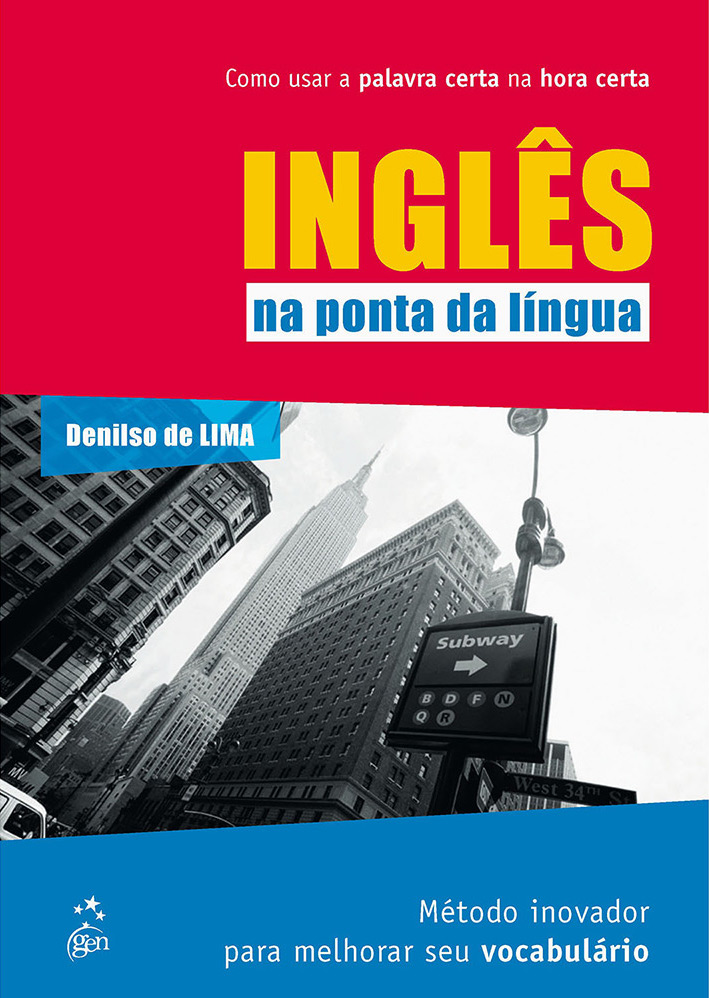How about organizing a Lexical Notebook?
Other bloggers have already written about having a notebook. You know, a notebook to write the grammar rules you learn, the list of words you may draw up, and so on. Now, let me give you a better idea. Let me tell you about a Lexical Notebook.
Don’t worry! A Lexical Notebook is a kind of personal dictionary that you compile for your own use. On that personal dictionary [your Lexical Notebook], you note down any chunks of language, collocations, idioms, common phrases, phrasal verbs, words, etc you may find interesting. Do not write any grammar rules on it. It’s a Lexical Notebook, not a Grammar Notebook!If you want to have a Lexical Notebook [I really hope you do], you have to learn how to organize it. One way to do so is as it follows.
The very first thing to be done is, of course, buy a small notebook (or a notepad, which is smaller). In my humble opinion, a notepad [caderneta] is way better. The choice is all yours! You can get the one you really like. The most important thing is that you have to feel comfortable with it.
Secondly, organize it in an alphabetical order. Separate 3 to 5 pages to one letter of the alphabet. Some letters – ‘k’, ‘x’, ‘y’ and ‘z’ – don’t deserve too many pages, because there aren’t many chunks or words starting with them [in Portuguese].
 Third, start writing some words on your Lexical Notebook. Don’t write the word in English and then its equivalence into your language. Do the opposite! Note down the chunks in your language first and then in English. The example below takes into account speakers of Brazilian Portuguese:
Third, start writing some words on your Lexical Notebook. Don’t write the word in English and then its equivalence into your language. Do the opposite! Note down the chunks in your language first and then in English. The example below takes into account speakers of Brazilian Portuguese:
- Se você não se incomodar – if you don’t mind
- Você alguma vez já foi a…? – have you (ever) been to…?
- Na minha humilde opinião, (…) – In my humble opinion, (…)
- … e assim por diante – … and so on.
- Uma vez na vida outra na morte – once in a blue moon
- Significar – stand for
All the chunks above should be written in the right place on your Lexical Notebook. I mean, in the right letter: S, V, N, E, U, S. Another tip: write an example or any curiousity about the chunk/word you write down. An example is “significar – stand for“. If I had to write it on my Lexical Notebook, I’d have it like this:
Significar – stand for
- example 1: What does “UN” stand for?
- example 2: UN stands for United Nations.
- curiosity: “stand for” is a phrasal verb and it is usually used as a reference to abbreviations.
This is a wonderful way to improve your vocabulary in English. It’s also a great opportunity to get yourself organized. If you want to know more about organizing the way you learn English and your Lexical Notebook read the book below [click on the picture to get more info about it].





Hi Denilso, nice post congratulations!Regarding about If I prefer to read this blog in English or Portuguese, I have to say that I prefer to read in English rather than Portuguese, because besides I am learning a new tip, I am improving my reading skills. Do you see what I mean? Kind of kill two birds with one stone.Best WishesBruno Oliveira
Thanks for posting this article ;-)Denilso,I think it's much better to read in english than portuguese :)Nice regards Denilso!
I've never tried that, sounds good!I'm gonna buy another ( yes, i've a lot of notebooks here ) and get started with that. English or Portuguese ? I prefer English to Portuguese, when you write in English I've to comment in English as well, "Practive makes perfect".Thanks for sharing this tip, i let you know if it really works for me!
Professor Denilso please volta a postar em portugues pois ainda sou iniciante e muitos são assim como eu….obrigado!
Hi, DenilsoI'm loving!!! It's good to practice the vocabulary, reading, etc.Thanks and good lucky!!!
Hey, good post! Please, keep posting in English. Thanks a lot!
Great post, Denilson.That's a wonderful idea for learning English…I'm an English teacher and I'll suggest my students to do that and so will I. Congratulations! This blog is awesome!!! And about the post in English… Why not post in both languages?? so everybody will have the chance to get it and at the same time learn English through English…
Hi, DenilsoVery good! It's good to practice the vocabulary, reading, etc.Thanks.
DenilsoI love your job. Thanks for all your tips.I prefer when you post in english, I think this is the correct way to learn English. If you think in English, you learn much more.Carol – SP/SP
Eu tenho uma pergunta "MUITO DUVIDOSA".O verbo DAR (não no sentido de doar, ceder).Tipo:Ficar no sol, dá sede.Agora me deu fome…Me deu medoe por aí vai…
Hello!!!That´s great!!The English´s text is very important for us.Congratulations!
Dear teacher DenilsonYour posts are awesome, I manage a way to find time do read your posts, they're very helpful.I do prefer them in English to Portuguese, but we all have to be concerned about the others who prefer Portuguese.So I completely agree with teacher Marco Antonio, why don't you post both language?Keeping your idea on and being helpful to anyone."any size fits all"Besides, we have some ads on it, why not?!Teacher Denilson, you are very brilliant.I respect and admire your work.Thanks a lot.MarileusaAraraquara/SP
Hey Denilso!!Yes, write in english is much better than in portuguese because its a good way to improve reading ability while learning new vocabulary through your tips!Thank you for your job!!!
Hi Denilson! Yes, I prefer much more in English. If our goal is to improve the language, I think that we need to read the most as possible. Actually I usually only read the parts of your posts that are in English…. But I agree with Marileusa, you could post in both languages, maybe only the more difficult ones, so the studants who are in the basic level can understand properly. And that way everybory can also practice translating portuguese for English.Thanks a lot for your blog!
Hi Denilso, to be honest I prefer read the post in english but lot of people can not read it!!but anyway I am here to say that is amazing your job here, helping people saying something in english…trying something…etc..etc..Thanks for you help!!!!Elizandro Silva
Professor Denilso por favor volta a postar em portugues pois ainda sou iniciante e muitos são assim como eu….obrigado! [2]
I completely agree with Marileusa/Araraquara.Thanks a lot.Nanci
Vc realmente é 10!Está me ajudando muito!Recomendei seu site a vários colegas!
Hi Denilso…I'm beginner but I prefer read in english. That is great oportunity for practice!thank you very much!!!
hi denilson fiz apenas o basico de ingles mas traduzo quase tudo que voce escreve em ingles se nao as collocations mas entendo o sentindo da frase em um todo e ai e que me exercito aprendendo . muito bom prefiro que continue escrevendo em ingles pois o que nao entender vou correr atras atraves do dicionario ou de um livro. take care
Muito bom o post… obrigado!
Hi Denilso,your site is, as we say in french, "Super"!Here we can learn too much, it's a realy school in the internet. Thanks a lot!Paulo
english to english, folks. even it takes time, and no fear in being wrong.
Yeah folks, English to English only if you level of knowledge is good enough to do that. Otherwise, go according to what is said on the post! I assure you it'll be much better!
Denilso,Já usei, anos atrás, a expressão "if worse comes to worst" para dizer "no pior das hipóteses…".Ex. If worse comes to worst and we miss the train, we´ll have to go by plane to get there on time.Is it old-fashioned like "raining cats and dogs" or is it common nowadays?
Hi Denilson, really it's a little hard to translate from English to English …But let's take off the jokes and go for where is our interest. I'd rather that you write according to student' level . At least everybody gets a enough knowledge.So long! Felipe Matos – Betim/ MG.
Lilian,this phrase is OLD-FASHIONEDHope I have helped you
I really liked it, I have a Grammar notebook but I am relly interested in have a Lexical notepad as well.
I've ever notebook but i did mess so i'll organise them and lexical book as well. Your tips are awesome…good luck
Otima dica! Eu ja faço isso a algum tempo. Nunca fiz nenhum curso de inglês, mas consegui ler o texto todo sem recorrer ao dicionario. Que orgulho de mim! rs.. Tenho muito interesse nessa lingua, e seu blog ajuda MUITO Denilso!Tenho uma duvida quanto ao 'ing'. Ja vi ele siginicar o present continuous como tb ter significado de verbo no infinitivo. Gostaria q vc explicasse-nos melhor isso, se ja nao tiver falado sobre.Obrigada, e parabens!
Liv,Aqui estão alguns artigos publicados no blog que tratam do ING: ING não é usado só em verbosPresent continousING novamenteVerbos que não admitem INGAbraços,Bruna.Curta o Inglês na Ponta da Língua no Facebook
Denilson, curso de inglês on-line, é recomendavel ?desde já grato
Rodolpho,Sobre sua pergunta, recomendo que leia a dica:Sobre Cursos de Inglês OnlineAtt.,Denilso de LimaCurta nossa fanpage no Facebook
Denilson, foi muito proveitosa sua resposta,vou direto ao assunto, a EF Englishtown é um, bom curso on-line ?
Rodolpho,Infelizmente, não poderei responder a sua pergunta.Não conheço o material, o método, o sistema de ensino, o conteúdo abordado, enfim nada relacionado à EF Englishtown.Já fizemos algumas ações em conjunto, mas foram ações comerciais e não pedagógicas. E também ações que não prejudicavam os leitores do meu blog.Att.,Denilso de LimaCurta nossa fanpage no Facebook
Denilso, poderia explicar qual o sentido do very nessa frase: "The very first thing to be done is…" ?
Olá Michelly,"The very first thing to be done is…" ?- A primeiríssima coisa a se fazer é…Abraços,BrunaCurta o Inglês na Ponta da Língua no Facebook
Hi.
I want to know why start with the sentence/word in Portuguese and not the other way around?
It´s just the way you think it´s better or there´s another way of explaining that?
Thanks,
Carla.
"Don’t write the word in English and then its equivalence into your language", but and if the word/chunk has several possible forms to translate?
Then you learn and write the equivalence that is relevant to the context you're dealing with at that moment. You don't have to write every possible meanings of a word/chunk while learning. That is, you can learn that a word/chunk has a specific meaning right now and after some days you may learn a different meaning in a different context. Got it?
Just a tip: in English "mas e se…?" is "what if". So your question should be like this, "what if the word/chunk has…?".
😉